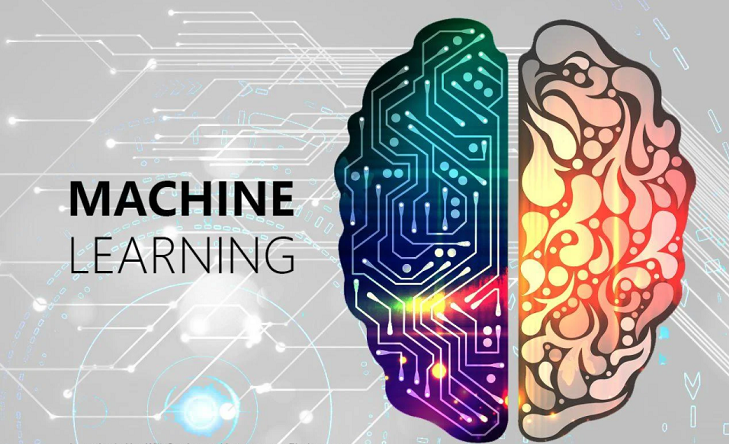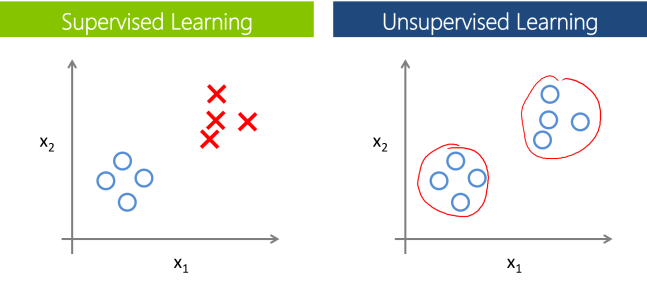What is Machine Learning: Key Concepts & Real-World Applications
 Naveen
Naveen- 1

Machine Learning: The Key to Understanding How Computers Learn
Machine learning is a branch of computer science that studies how computers can learn without any special programming. It is described as an important part of artificial intelligence (AI) because it enables computers to learn and improve their performance without special programming In recent years, machine learning has gained a lot of attention due to many applications such as natural language processing , computer for vision and games.
What is Machine Learning?

Machine learning is about the development of algorithms that allow computers to learn from data and make predictions without special programming. These algorithms are designed to automatically identify patterns in large data sets and use them to make predictions or decisions based on new data. There are two main types of machine learning: supervised and unsupervised.
Supervised machine learning algorithms use de-identified data to learn patterns that allow them to make predictions or make decisions based on new, de-identified data. This type of machine learning is often used in applications such as image recognition, speech recognition, and natural language processing.
In contrast, unsupervised machine learning algorithms do not use labeled data to make predictions or decisions. Instead, they identify patterns in unlabeled data sets and group similar data points together. This type of machine learning is commonly used in applications such as clustering, outlier detection, and dimensionality reduction.
The most common application of machine learning is pattern recognition, which allows a computer to interpret text or audio data and apply it to future decision making. Machine learning algorithms also help computers find patterns in large data sets, such as internet traffic, clickstreams, social media and financial transactions. They also now play an important role in the way we learn, helping us make sense of data we otherwise couldn’t, including learning more about our own mental states.
Machine learning is part of artificial intelligence, a branch of computer science that focuses on building intelligent machines (computers and robots) that can “learn” from observations and data. The most popular use of artificial intelligence is in automotive cars, but machine learning can do much more. Machine learning algorithms are able to process data by exploiting the universal properties of large data sets, simulating individual aspects through trial and error, or using an existing model that can be refined. It is this iterative process that makes machine learning more efficient than humans at detecting patterns in large data sets, such as graphs with millions or billions of nodes and edges labeled with n-dimensional mathematical vectors.
Why is Machine Learning Important?
Machine learning is important because it allows computers to learn and improve their performance over time without being specifically programmed to do so. It has many applications in many industries and sectors including healthcare, finance, advertising and more.
One of the most common uses of machine learning is pattern recognition. It allows computers to interpret text or speech data and apply it to future decisions. Machine learning algorithms also help computers find patterns in large data sets, such as internet traffic, clickstreams, social media and financial transactions. They also play an increasingly important role in the way we learn, helping us make sense of data we otherwise couldn’t, including learning more about our own mental states.
Machine learning is part of artificial intelligence, which is a branch of computer science that focuses on building intelligent machines (computers and robots) that can “learn” using observations and data. The most popular use of artificial intelligence is in self-driving cars, but machine learning can be used for many other things as well.
Applications of Machine Learning
Machine learning is being used in a growing number of industries and sectors, including but not limited to:
Banking: Using machine learning to predict the probability of loan repayment, interest rates, estimated return on investment or the probability that someone will default. It is also used to detect fraud and guarantee loans.
Healthcare: Machine learning is used to detect early signs of heart disease and cancer in medical images such as MRI scans. Machine learning algorithms are also able to process the data, identifying patterns in numbers that are largely out of range and identifying clusters of activity.
Advertising: Machine learning algorithms monitor user-generated content and provide advertisers with useful information about the effectiveness of campaigns. For example, Snapchat uses machine learning to make sure it shows the most relevant ads to users. Amazon uses machine learning to determine which products should be included in a user’s next purchase after looking at previous purchases and what other products they have.
Conclusion
Machine Learning has the potential to transform the way we live and work by enabling computers to learn and improve their performance over time without explicit programming. Its numerous applications across many industries and sectors make it a valuable technology to understand and implement for businesses. However, it is important to recognize that machine learning is not a one-size-fits-all solution, and its effectiveness will depend on various factors.
Popular Posts
Author
-

Naveen Pandey has more than 2 years of experience in data science and machine learning. He is an experienced Machine Learning Engineer with a strong background in data analysis, natural language processing, and machine learning. Holding a Bachelor of Science in Information Technology from Sikkim Manipal University, he excels in leveraging cutting-edge technologies such as Large Language Models (LLMs), TensorFlow, PyTorch, and Hugging Face to develop innovative solutions.
View all posts


Nice explanation